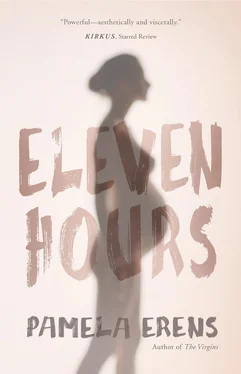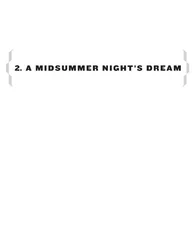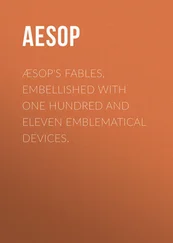Sixteen minutes.
“Maybe the TV,” says Lore.
“Very good.” Franckline points the remote at the television. Two women and a man coalesce from a blurry panel of color. At first there’s no sound. The women sit on a couch and the man — the host, apparently — is behind a desk. The women, dressed in tight sleeveless sheaths and high-heeled pumps, laugh frantically over something the man has said, throwing themselves over their laps and then throwing themselves back, flinging their long hair behind them. The women lean and laugh, their mouths enormous, open, glistening things, their shoe heels pointed as skewers.
Franckline pushes at the volume button and the conversation rises into the room.
“… tried to make the tacos …”
“… food poisoning! He said he’ll never trust me again …”
(And then male laughter: haw haw haw haw haw .)
Lore is staring moodily at the screen, as if wounded by the banter of the women and the host egging it on. Franckline wonders if she ought to find another channel, but they will all be the same: laughter and loud voices, guns and car chases, at best a religious lecture. Merchandise spinning on a platform. Perhaps that would be all right: earrings and bracelets nestled in gray velvet, glinting in the bright TV lights. Sometimes, in the evening, tired from work, Franckline watches Home Shopping Network or QVC with the sound turned low. If you know you are never going to buy anything, it can be soothing to watch the glittering items offered one after the other. You probably enjoy them for nearly as long as the people who buy them do. Bernard believes that the television for anything but the news and the financial reports is a waste of time, and occasionally Franckline has to fix him with a look and say that perhaps he doesn’t ever need waste and forgetfulness but that she, at least for tonight, does.
“… a tattoo where? …”
“… no, darling, I won’t show you …”
( Haw haw haw haw haw! )
Nineteen minutes since Lore’s last contraction. Franckline feels a pulsing in her groin — not quite a pain, perhaps, or, yes, a pain. Is she imagining pain into being by fearing it? At the library in Flatbush, on the computers there, she has looked at the images of bicornate uteruses, pinkly meaty, split like a wishbone. The two petal-like chambers, the gestational sac residing in one. Her baby is growing in the left chamber. The hospital doctors say there’s a reasonable chance the chamber will expand enough to allow the baby to grow to term, especially since Franckline has already borne a full-term child, but they don’t want to make promises. She can’t help at times picturing the child running out of room, the head pushing against the uterine wall, or the cervix giving way and the unfinished life spilling out.
Snow falls outside the window, not heavy, not light, steady and wet-looking, small splatters of moisture rather than neat dry flecks. The evening she met Bernard he spoke of snow, the delicate, floating wonder of it, and the tall hills that stayed on the ground for weeks and did not disappear. They were at his mother’s table. Bernard had found her on the steps of the Port-au-Prince Cathedral, where she sat, footsore and very hungry, having wandered for hours in the city. She had lasted six months at home, trying not to see her lost baby in the face of every child. She had wept so compulsively, so unendingly, that even her aunt Thérèse, her favorite, who always indulged her, slapped her and said it was time to behave herself, to stop spitting at fate. She would have another child, many more, Tante Thérèse told her, at the right time, but Franckline wondered who would take her as his woman in her disgrace. Her value had been greatly reduced. Would she be made to join with someone she hated, who disgusted her? And in any case the thought of more children did nothing to numb the ache; it was that child, the silent child, the one she had come to know so well over the months she had carried him — his kicks and hiccups and slumbers — that she longed for. That child would never be born again, not in that body, on that day. She had been meant to be ashamed of him but he had been immune to her shame, had been something great and new and clean, for all the days he had lived.
She left home one day in late spring. She had turned eighteen the week before. A woman wrapped in dirty tatters leaned against one of the cathedral arches, muttering and occasionally, sharply, calling out the word “Father!” like a curse. Franckline had spent nearly all of her money on a series of tap-taps to the city, and she had no place to stay. She had thought, foolishly, that she could sleep in a park or behind the Presidential Palace unmolested, but the eyes and gait of the men on the street made her understand that this was not so. Now, about 10:00 PM, a man approached her and said he had a room for the night, did she need one? She suspected what sort of payment this might involve but she was panicky and hungry and she was already, in the mind of those she had left behind, spoiled. Would it matter so much? But before she could rise to join the man, Bernard was there, telling the man to Al fè rout ou , to leave his sister alone. The man shrugged skeptically and moved away. Like a bad spirit he vanished into the dark. Bernard asked Franckline if she wanted something to eat, and bought her a large plate of goat fritay from a street vendor. She supposed he might be merely another, cleaner, version of the man who had offered her the room, particularly after he said she couldn’t stay out like this for the night, he would take her to his mother. But she didn’t think so. His eyes didn’t seem to have the same narrowed appraisal in them. His gentleness did not appear to be a fraud.
He did in fact take her to his mother, not far from the center of the city. She was a tall woman with glasses and a commanding air. She served Franckline — aware that she had not bathed for two days — spiced cocoa and fresh pineapple, and Bernard talked about Miami and New York, both cities he had studied in; he planned to go into banking or finance. He described the snow in the north, where they had family, how surprisingly light it was when you scooped it into your hands. And yet it was heavy enough to make roofs tumble down. He did not talk about how, within days, it blackened and crusted on the sidewalks and turned into gray slush in the streets. Franckline discovered that only once she was in Brooklyn herself. The banks that grew up by the sides of the road frightened her; she found it sinister the way they buried lost things, items revealed only months later: a doll’s arm, a stamped envelope, a child’s pair of pants. When Franckline passed by those banks, all she could think of was the refuse hidden inside.
She did not believe Bernard had omitted the snow’s despoilation to make a better story, to entice her. More likely he simply did not think of it. What mattered was the beauty life presented you with; ugliness was incidental, transient. The essence of snow was to be beautiful; therefore, in all of Bernard’s stories about snow, it was beautiful. Bernard’s mother showed Franckline where she could bathe, and put her to bed in sheets that were wonderfully stiff and clean. In the morning there was hot coffee and fresh bread and eggs. Bernard had already left for his job delivering crates of cereals and soap.
A knock on the labor room door, but the one who knocked doesn’t wait, opens the door and strides in. It is a tall, broad, youngish man in a dark overcoat dusted, like his hair, with snow, snow that seems to have tumbled right out of Franckline’s recollections to moisten his nose and eyebrows. He strides past Franckline toward Lore. He is carrying an enormous white stuffed panda with a store tag still dangling from one ear. He stops abruptly and turns back to Franckline.
Читать дальше












